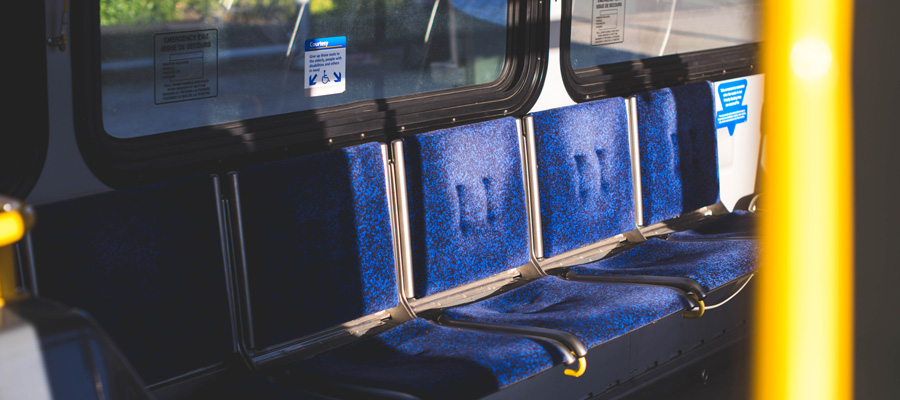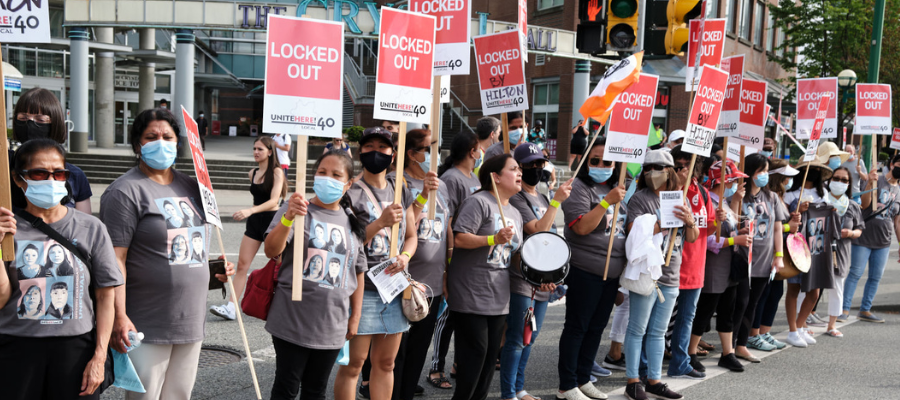Independence or a bit more income: British Columbians with disabilities are forced to choose

On September 1st, British Columbians on disability assistance saw their monthly rates go up for the first time in nine years. Unfortunately, the BC government bundled a significant clawback in transportation benefits with the rate increase, making it a lot less generous as a result.
While the provincial government increased financial support for people with disabilities by $25 per month (from a measly $906 per month to $931 per month), they also cancelled the low-cost bus pass program. The bus pass had previously been available for the modest annual fee of $45.
The choice provided is clear: people with disabilities must choose between having a bus pass or having a bit more money to pay for basic needs – at the risk of social and physical isolation.
When the changes were originally announced in February, the government’s plan had been to continue to charge $45 per year to those who chose the bus pass option – but they eventually dropped the fee after an outcry from the BC disability community.
While this was a win, it was a small one. Bus pass users would still be paying up to $624 per year for a program that had, until recently, only cost $45 per year.
Finance Minister Michael de Jong defended the new bus pass fee in his Budget 2016 speech, claiming that the new policy gave people with disabilities the “freedom to make their own choice about how to meet their own unique transportation needs.” He stated the goal of the new increase was to make life “a little less hard” for British Columbians living with disabilities.
After delving deeper into the math, however, it’s difficult to see how these changes would truly make life “a little less hard” for some of the most marginalized members of our community. The choice provided is clear: people with disabilities must choose between having a bus pass or having a bit more money to pay for basic needs – at the risk of social and physical isolation.
This September, 3,500 people with disabilities chose to give up their bus passes. This is roughly 10% of the 35,000 people with disabilities who used to receive the annual pass. The fact that 90% of people chose to retain their bus pass is a clear sign of how vital public transit is to maintaining their independence and social connection.
Accounting for inflation, neither option brings the real value of the disability benefits back to what they were in 2007.
This is particularly shameful, considering that this is the first increase in disability assistance rates in over nine years. The $52 per month option would, in combination with the general $25 per month increase, still only yield an 8% increase over the old rates. This doesn’t even bring the real value of the disability benefits back to what they were in 2007, as inflation has increased by 9% since then. For those who choose the bus pass, the extra $25 represents only a 3% increase compared to the old rates.
This paltry increase is a far cry from what’s needed to cover the actual cost of living in our province. The prices of essentials like food, housing and utilities, are going up much faster than general inflation. According to Statistics Canada, since 2007:
- the price of food in BC has risen by 23%,
- the price of rent in BC has risen by 12%, and
- the price of utilities in BC (water, fuel and electricity) has risen by 27%.
Food bank use statistics reveal just how challenging times are for people with disabilities in BC. In March 2015, there were 110,000 people with disabilities who received social assistance in BC. Almost one third of them—29%, or 31,000 people—needed the food bank last March. It’s clear that our social assistance programs are failing to meet the basic needs of their recipients, with or without disabilities. These programs are in urgent need of reform.
Almost one third of people with disabilities needed the food bank last March. Social assistance programs are failing to meet basic needs.
The changes to disability assistance rates came at the end of a long consultation process with the disability community in BC. When the province released its Disability Consultation Report in 2014, the Premier acknowledged that disability supports should be increased and claimed this was one of her priority areas for new spending “when we can afford it”.
It seems that she didn’t really mean it.
There is no excuse for woefully inadequate welfare and disability assistance rates in a wealthy province like ours. BC is projected to have the strongest economic growth in the country this year. The provincial government is now forecasting a budget surplus close to $2 billion. We can clearly afford to better support those in need but we are choosing not to.
This needs to change. As a start, the BC government must boost disability benefits and welfare rates to levels that reflect the real costs of living in our province, and make the annual bus pass available for free to people with disabilities.
Ultimately, providing adequate levels social assistance is only part of the solution. BC must follow the lead of other provinces and adopt a comprehensive poverty reduction plan.
Topics: Poverty, inequality & welfare


